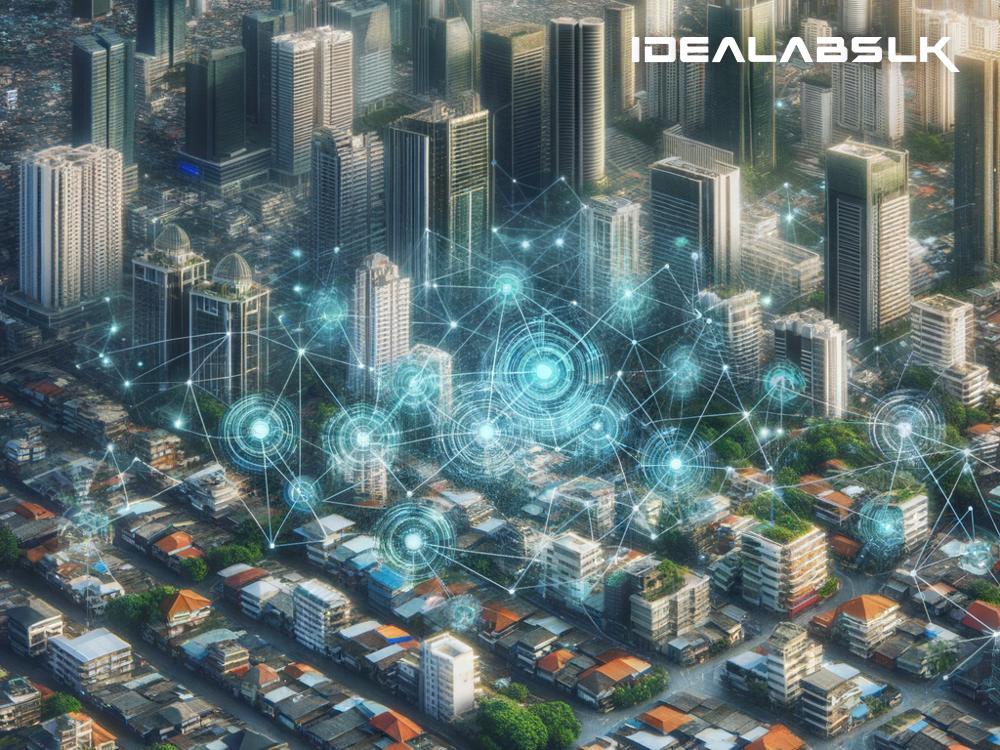Blockchain in Real Estate Portfolio Diversification: A Simple Guide
Investing in real estate has long been a popular way to grow wealth and diversify investment portfolios. Traditionally, entering the real estate market required a significant amount of capital, insider knowledge, and the willingness to deal with potential headaches like managing properties and dealing with tenants. However, blockchain technology is revolutionizing the way we invest in real estate, making it more accessible, transparent, and easier to diversify your investment portfolio.
What is Blockchain?
At its core, blockchain is a digital ledger that records transactions across many computers so that any involved record cannot be altered retroactively, without the alteration of all subsequent blocks. This technology is most commonly associated with cryptocurrencies like Bitcoin, but its potential extends far beyond digital currencies.
How Blockchain Revolutionizes Real Estate
Blockchain introduces a concept called "tokenization" to the real estate market. Tokenization is the process of converting rights to an asset into a digital token on a blockchain. Imagine you're looking at a building worth $2 million; this building can be divided into 2,000 tokens, each token representing a 0.05% ownership in the property. You could buy 100 tokens and own 5% of the property. This fractional ownership makes real estate investment more accessible to a broader range of investors, especially those with smaller budgets.
Benefits of Blockchain in Real Estate
-
Accessibility: By lowering the financial barriers to entry, blockchain enables more people to invest in real estate. You don't need tens of thousands of dollars to start; you can invest with what you're comfortable with.
-
Liquidity: Real estate is traditionally a fairly illiquid asset; it can take months to sell a property. However, with tokenized assets, you could potentially sell your tokens on a secondary market much quicker, thus increasing the liquidity of your investment.
-
Transparency: All transactions recorded on a blockchain are visible to all parties and cannot be changed. This transparency reduces the chance of fraud and makes the process of buying and selling real estate more transparent.
-
Diversification: Tokenization enables investors to spread their investment over multiple properties across different geographies and types (residential, commercial, industrial, etc.), reducing risk and improving the potential for returns.
Real-world Applications and Success Stories
Several platforms have emerged, utilizing blockchain for real estate investments. These platforms offer a variety of properties, from residential units in prime locations to commercial real estate, allowing investors to choose where and how much they want to invest. Success stories abound, from investors who have seen significant returns from their diversified real estate portfolios to those who appreciate the ease and security that blockchain brings to their investments.
Overcoming Challenges
Despite its many benefits, blockchain in real estate is not without its challenges. Regulatory issues, market acceptance, and the technological learning curve can be significant hurdles. However, as more people understand and trust blockchain and as regulations evolve to accommodate new technologies, these challenges are gradually being overcome.
The Future of Real Estate Investing
As blockchain technology matures and becomes more widely accepted, its impact on real estate investing is expected to grow. The tokenization of real estate assets is only the beginning. We're already seeing the introduction of smart contracts—self-executing contracts with the terms directly written into code—that could automate many aspects of the real estate transaction process, from escrow to title transfers.
Conclusion
Blockchain is set to disrupt the real estate industry significantly, making it more accessible, efficient, and secure for investors. By allowing fractional ownership, improving liquidity, increasing transparency, and enabling diversification, blockchain opens up new opportunities for investors of all types. While challenges remain, the potential for blockchain in real estate portfolio diversification is immense and is already beginning to be realized. As an investor, staying informed about these developments could be key to unlocking new opportunities and achieving a well-diversified investment portfolio.
Blockchain in real estate represents not just the future of real estate investment but also a significant shift towards a more democratized financial world where opportunities are not reserved for the few with substantial capital and insider knowledge. As we move forward, embracing these changes will be crucial for investors looking to grow and safeguard their wealth in dynamic and innovative ways.

